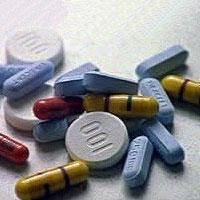SOUTHERN AFRICA: New PMTCT drug regimen catching on

HIV-positive mothers in South Africa will have a better chance of not passing the virus to their babies, after the government announced it was switching to a more effective drug regimen, which can reduce the risk of transmission to as little as five percent.
Eight of the country's nine provinces are still using single-dose nevirapine for the prevention of mother-to-child transmission of HIV (PMTCT); the exception is Western Cape Province, where a combination of drugs has been used for several years.
Dual therapy, a combination of two antiretroviral (ARV) drugs, has proved almost three times more effective in cutting HIV transmission than nevirapine alone. Botswana has lowered its rate of mother-to-child infection to less than four percent as a result of dual therapy.
"The attitude is now that definitely we need to go to dual [therapy], as scientifically it has been proven that monotherapy has very serious negative affects," said Nthari Matsau, deputy director-general of South Africa's health department.
World Health Organisation (WHO) guidelines for PMTCT advise using combination therapy where possible. Some studies suggest that using nevirapine alone can create drug resistance, which later complicates ARV treatment for mothers.
The government's dual therapy announcement this week came on the heels of a Global Partners Forum meeting in Johannesburg, organised by the UN Children's agency (UNICEF) and WHO, to review the progress of 108 countries towards achieving universal access to PMTCT services.
There has been growing frustration in South Africa over the government's delay in rolling out combination therapy. Nathan Geffen, a spokesman for AIDS lobby group the Treatment Action Campaign (TAC), told IRIN/PlusNews that while TAC welcomed the health department's new policy, the decision to introduce dual therapy was long overdue.
"There has been nothing stopping the health minister ... [from] standing up and saying that any hospital or clinic that has the capacity to administer dual ARV prophylactics can proceed and do so," he said. "There are a number of places that would do it at once if given the go-ahead. It has been done in the Western Cape Province for the past three years with great success."
In the rest of Southern Africa, governments have recently started introducing the new regimen. In Zambia, for example, combination therapy for PMTCT is only available in urban areas, while rural districts continue to administer monotherapy.
Still a long way to go
At the UN General Assembly Special Session (UNGASS) on HIV/AIDS in 2001, countries agreed to cut HIV infection among infants by at least 50 percent by 2010, and ensure that at least 80 percent of pregnant HIV-positive women had access to PMTCT services.
Research findings presented by UNICEF at the Global Partners Forum indicated that only 17 of the 108 low- to middle-income countries surveyed were on course to meet the UN target in 2006. Countries are classified as being on track if at least 48 percent of all their HIV-positive pregnant women received ARV prophylaxis.
The 108 countries surveyed account for an estimated 99 percent of the near five million HIV-infected children younger than 15 years who need ARV treatment.
The report revealed that only 16 percent of the women who gave birth in 2006 were tested for HIV, an increase of just 6 percent on the figures for 2004 and 2005.
In sub-Saharan Africa only 27 percent of antenatal care facilities provided a minimum package of PMTCT services, including HIV testing and counselling, but there was significant regional variation: coverage in East and Southern Africa reached 38 percent, compared to a lowly 12 percent in West and Central Africa.
"Looking at the 20 countries with the largest numbers of children in need of treatment in the world, only four of these - Brazil, Botswana, Namibia and Thailand - have reached at least 50 percent of children in need of treatment," the report noted.
South Africa's health minister, Manto Tshabalala-Msimang, welcomed UNICEF's recognition of South Africa as one of the 17 countries on track to provide PMTCT services in more than 90 percent of public health facilities.
However, TAC's Geffen said the public should not be misled by her "back slapping", as the latest antenatal clinic survey found that 29 percent of attendees - 168,000 women - were HIV-positive, but only 44 percent of them had received ARVs to protect their babies.
"These results are appalling," Geffen was reported as saying. "How the health department can conclude from this that we're on track, I do not know."
 Back and Next - Back and Next
Back and Next - Back and Next See Also - See Also
See Also - See Also